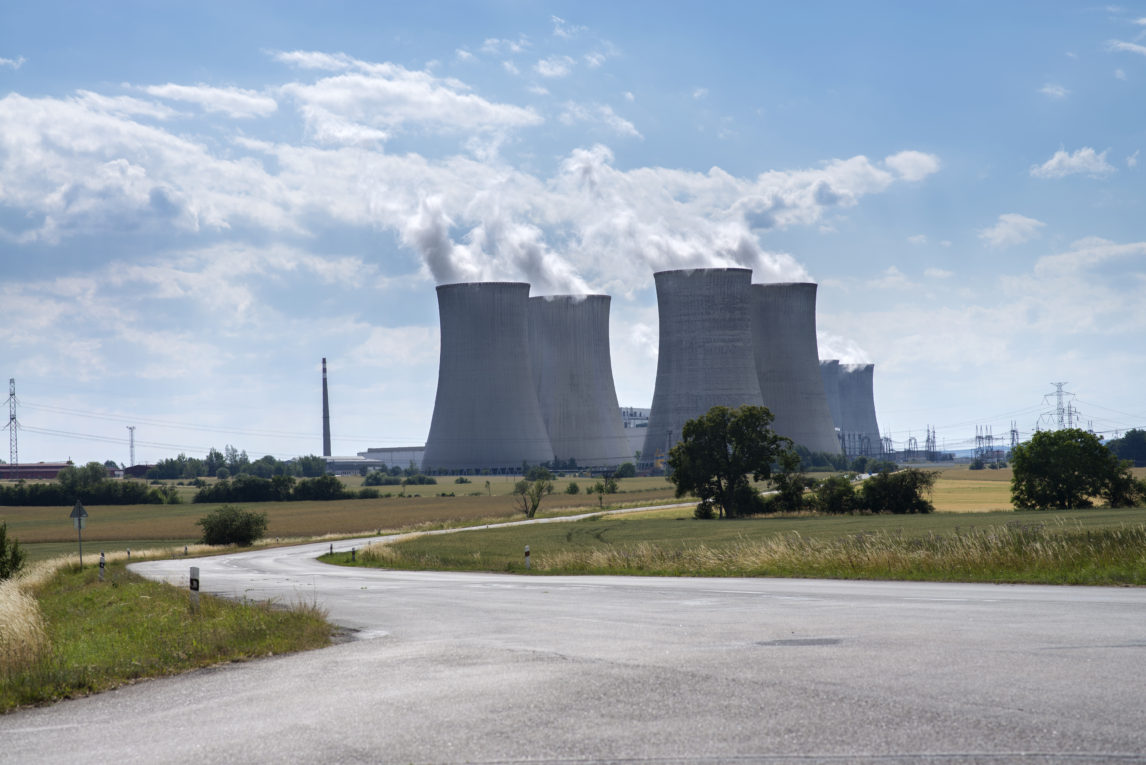FOR IMMEDIATE RELEASE
August 1, 2013
Entergy’s FitzPatrick nuclear reactor in Scriba, New York has been plagued by escalating equipment problems, causing the reactor’s operators to repeatedly take it partially offline, reducing the plant’s reliability and safety.
 Nuclear watchdogs are calling on the Nuclear Regulatory Commission (NRC) to require Entergy to replace its failing equipment. They are also asking the agency to investigate whether financial losses at the plant are causing management to put off important maintenance.
Nuclear watchdogs are calling on the Nuclear Regulatory Commission (NRC) to require Entergy to replace its failing equipment. They are also asking the agency to investigate whether financial losses at the plant are causing management to put off important maintenance.
“FitzPatrick is becoming increasingly unreliable and dangerous,” said Jessica Azulay, an organizer with the New York based Alliance for a Green Economy. “While NRC continues to document these escalating issues, the agency has yet to take decisive action to stem these problems and ensure public health and safety.”
According to the most recent NRC inspection report about the plant, which was released Tuesday, FitzPatrick continues to see problems with its main condenser. During the inspection period, which covered April to June 2013, operators had to reduce power four times to plug leaks in the condenser. They also reduced power on several other occasions to fix other problematic equipment.
The recent power changes are part of a worsening trend at FitzPatrick. An analysis by the Union of Concerned Scientists shows that condenser issues at FitzPatrick have been escalating over ten years and that the plant is a far outlier in the US nuclear fleet. FitzPatrick accounts for over 30% of condenser tube events that have occurred in the US nuclear fleet in the past decade.
In February 2013, NRC placed FitzPatrick under Increased Regulatory Response for the unplanned power changes performance indicator, mostly caused by condenser problems. An unplanned power change occurs when nuclear operators unexpectedly have to decrease power output at a plant. NRC tracks these changes because they “upset plant stability and challenge critical safety functions,” making it more likely that an accident could occur. With an average of 7.4 unplanned power changes per 7,000 hours of operation, FitzPatrick has had 10 times the industry average number of these initiating events.
However, even with increased scrutiny from the NRC, unplanned power changes related to the condenser continue at FitzPatrick and can be expected to continue until the condenser is replaced. Concerned citizens have responded by pressuring the NRC to take further action to stem safety issues at the plant.
In a petition filed with the NRC last week, Union of Concerned Scientists, Alliance for a Green Economy and other groups pointed to the escalating problems caused by the condenser at FitzPatrick and asked the NRC to enforce Entergy’s stated plans to replace FitzPatrick’s condenser during the 2014 refueling outage. Without NRC enforcement, Entergy could change its plans without consequence.
The need for a condenser replacement at FitzPatrick comes at an economically inconvenient time for Entergy. Successive reports by the investment community have predicted FitzPatrick will lose money every year until at least 2016, due to low electricity prices, increased age-related maintenance costs, and required post-Fukushima safety upgrades.
“We believe the financial strain at FitzPatrick is leading the company to put off an obviously needed condenser replacement, putting the public at risk in an attempt to squeeze a profit out of this run-down reactor,” said Azulay. “It begs the question, what else is the company doing to save money and how else is our safety being compromised?”
On March 18, the Alliance for a Green Economy called the NRC’s attention to the deteriorating financial situation at the plant and asked the NRC to shut the plant down before nuclear safety could be further compromised. A preliminary ruling on that petition is expected by the end of the August.
Contact: Jessica Azulay, Alliance for a Green Economy
315.480.1515, jessica@allianceforagreeneconomy.org
Resources:
Union of Concerned Scientists Petition Regarding FitzPatrick Condenser
Petition Challenging Entergy’s Financial Qualifications to Operate FitzPatrick Reactor

